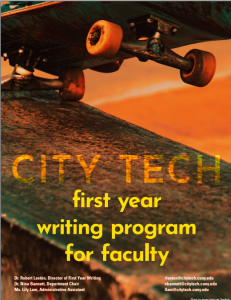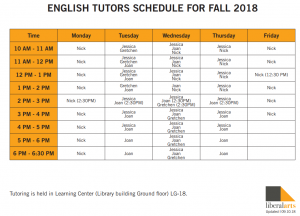I hope you are all able to remain relatively calm and healthy throughout these difficult times. First of all, I want you to know that we understand that this is extremely stressful and difficult—we know that this is an imperfect solution and that we’re all fumbling. Remember that we’re all in this together—we don’t expect you to be perfect. I will be available via FaceTime and Skype next week (I’m getting that set up) but for now, if you need to talk to me, please send me an email and we can set up a phone call.
By Monday of next week, I will post some more in-depth tips and suggestions about technologies and assignments on this site (I know many people have sent many handy suggestions, but I would like to have them all in one place.) For now, here are a few important points to keep in mind when modifying your curriculum:
- The most important thing to keep in mind is access. That is, ALL of your students must be able to access all of the course materials with technologies they possess. Many of our students do not have access to the Internet in their homes. You may want to take a poll of your students to find out what resources they have access to. Google Forms is a good way to poll students.
- Please note that your course will not look like a virtual version of your classroom. You don’t have to “meet” at the same time every week that you have been in your face to face classes. Instead, you may decide to have students participate in online discussions, or you may request online video or Power Point presentations by students—more on these types of assignments will be posted on the First Year Writing website on Monday.
- Don’t feel the need to reinvent the wheel. If your class is on OpenLab, stay on OpenLab. If you use Blackboard, stay there. Remember that this isn’t a traditional online class; this is an emergency procedure. If you have no course website, I do suggest you develop some web presence—even Google Docs will do. It will be helpful to have a command center where students can check in for information about the week’s activities.
- Be flexible. Don’t be afraid to modify assignments. It’s important that we all operate within a culture of care—for our students, for each other, and for ourselves. This is a difficult and uncertain time for us all. Students may be traveling, sick, caring for sick relatives, lacking internet, experiencing financial insecurity, and so on. They may be confused by the new curricula. When possible, provide multiple access options and flexible deadlines and policies. And be kind to yourself.
Again, I am here for you—that’s my job! Please feel free to contact me via email and I’ll be happy to confer with you.
Take good care. More specific recommendations will be posted on Monday.
C






